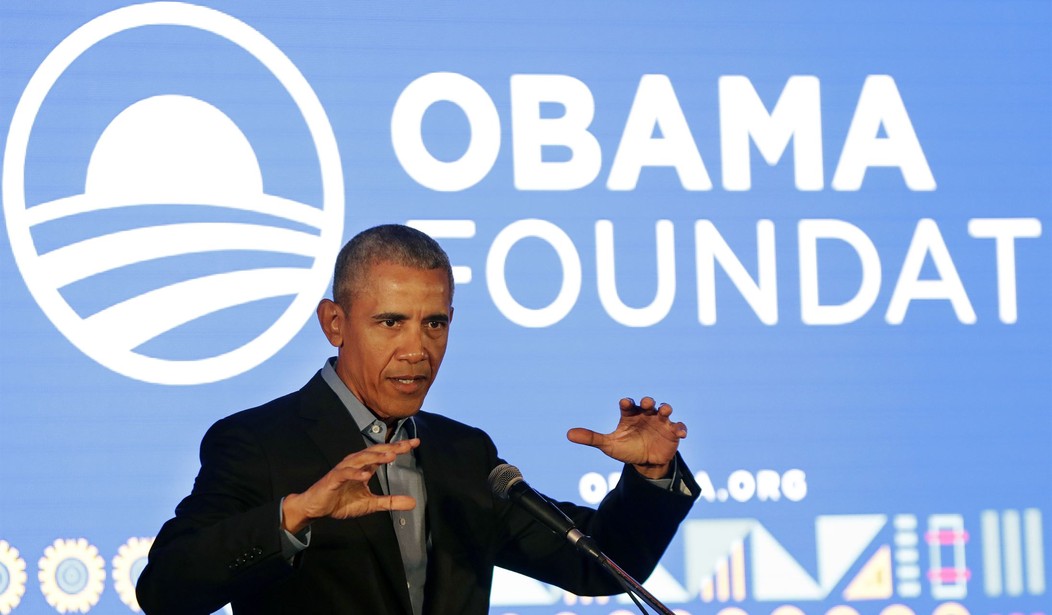"Democracy demands that we're able to also get inside the reality of people who are different than us, so we can understand their point of view. Maybe we can change their minds, maybe they'll change ours."
That was Barack Obama speaking in South Africa on the 100th anniversary of Nelson Mandela's birth.
The former president went on to say that you can't change peoples' minds "if you just out of hand disregard what your opponent has to say from the start. And you can't do it if you insist that those who aren't like you, because they are white or they are male, somehow there is no way they can understand what I'm feeling, that somehow they lack standing to speak on certain matters."
Now, I am biased. I recently wrote a book making many of these and other points Obama made. But I also understand why many conservatives are dyspeptic about Obama pushing this message.
As president, and on his path to the presidency, Obama often exploited identity politics for partisan advantage. He called on Hispanic voters to "punish our enemies." He appointed to the Supreme Court Sonya Sotomayor, who famously suggested that a "wise Latina" on the bench would come to better conclusions than a white male would.
Obama also had an annoying tendency to ascribe bad faith to anyone who didn't share his opinions or conclusions.
Nevertheless, Obama is right. Identity politics is a fundamentally undemocratic phenomenon. It assumes that vast numbers of individual human beings can be reduced to the color of their skin, their gender or their sexual orientation. Diversity among different "kinds" of people is celebrated everywhere, but intellectual, ideological and political diversity among those groups is demonized. The idea that all I need to know about someone is the color of their skin -- white or black -- strips individuals of their individuality and their agency.
Recommended
Obama is also right when he says that, "Strongman politics are ascendant suddenly, whereby elections and some pretense of democracy are maintained -- the form of it -- but those in power seek to undermine every institution or norm that gives democracy meaning."
Obama implied that this is only a phenomenon of the right, and was almost surely taking a veiled shot at Donald Trump.
But this is a problem of the left, too. The right-wing populism galloping across Europe is in no small part a response to the undemocratic tactics of the European Union, which looks at democratic accountability with a sovereign disdain.
More importantly, many nationalist-populist voters backed Trump in part out of their understandable frustration with the way "the establishment" ignored the will of voters and even Constitutional prohibitions. Obama, for example, said he couldn't amnesty the children of illegal immigrants because the Constitution prevented him. Then he did it anyway.
But here's the thing: I'm still glad Obama is saying these things because, again, he's mostly right.
Americans have always detested hypocrisy, in part because this country was founded on the idea that monarchs and aristocrats were no better than anyone else. A king can be a hypocrite because kings aren't subject to the laws governing their subjects. In America, the dogma of "Who are you to judge me" and "You're not the boss of me" lives loudly in us. And I love that.
But everything good can become toxic if you increase the dosage too much. Our political culture has become poisonously obsessed with hypocrisy.
We act as if basic truths are untrue if the wrong messenger gives them voice. Former adulterers must not speak against adultery. Parents shrink from lecturing their children about, say, smoking pot or underage drinking for fear of feeling like hypocrites because they did those things when they were young. Never mind that good parenting requires giving your kids the benefit of lessons you've learned, not encouraging them to make the same mistakes you did.
I understand why some conservatives want to dismiss Obama's statements. They only see the hypocrisy. But there's a reason we say hypocrisy is the tribute vice pays to virtue. Hypocrisy is a good gauge of a person's sincerity in defense of an ideal. It's near useless in gauging the merits of the ideal.
Would it be better if Obama endorsed tribalism and identity politics? Obviously not. Would it be better if he'd lived up to and defended these ideals better when he was president? Yes.
But outside of Jesus, I'm unaware of anyone who lived up to their ideals all of the time. Meanwhile, let's celebrate when our political opponents agree with us.























Join the conversation as a VIP Member